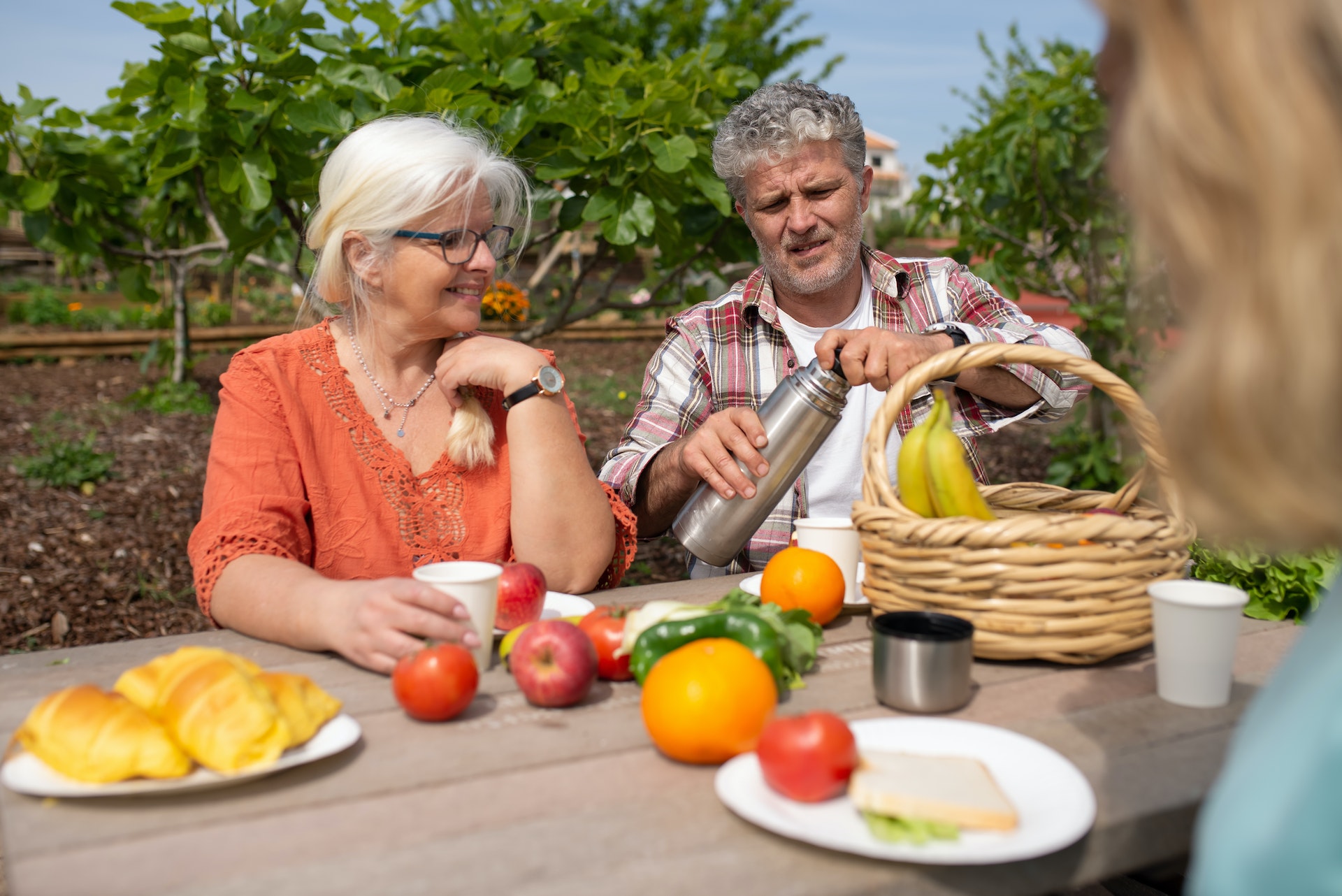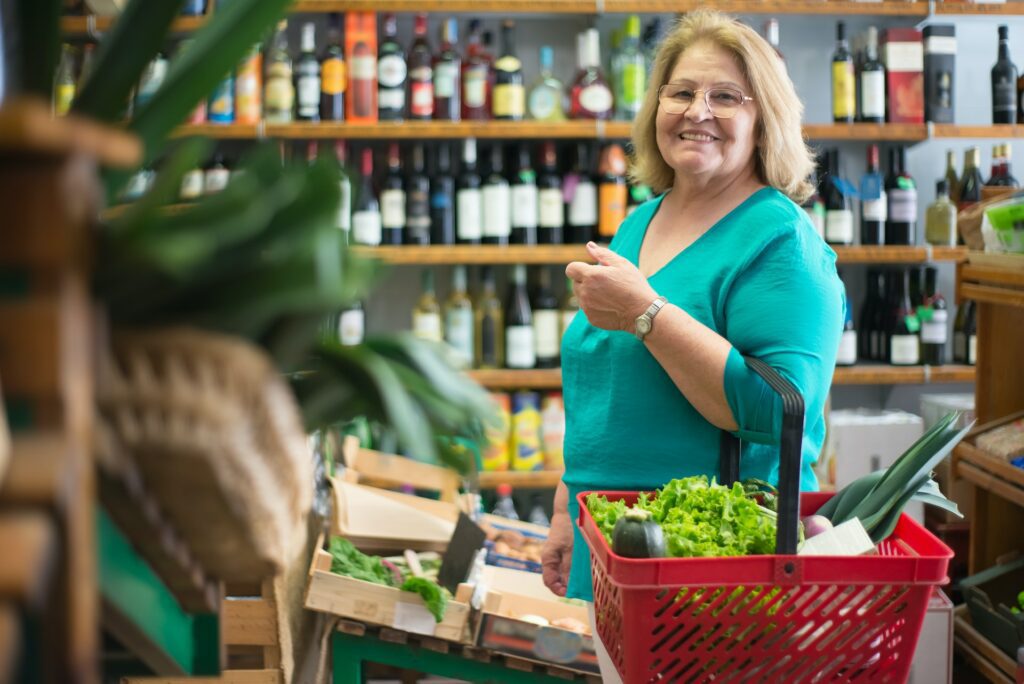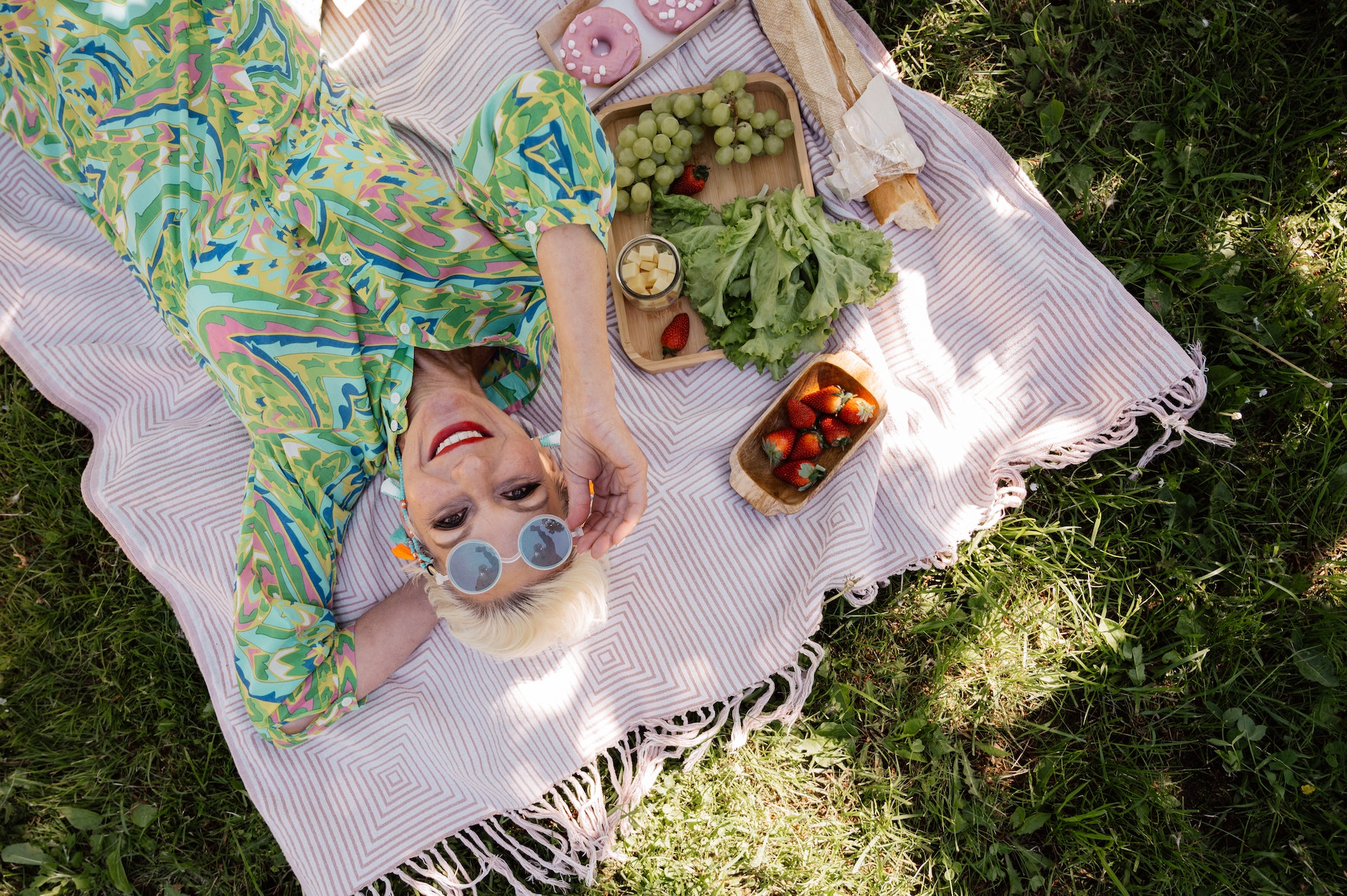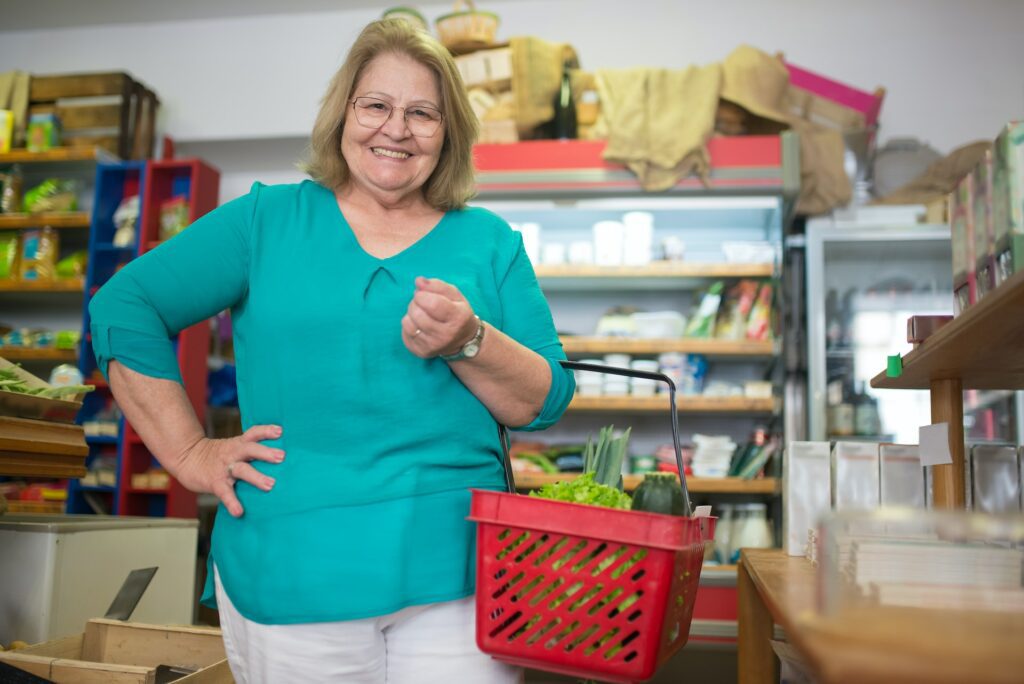The Joy of Eating Together: The Importance of Social Eating for Older Adults
Food is more than just sustenance; it is a source of joy, connection, and community. For older adults, in particular, social eating holds a special significance. It is not just about the nutrients on the plate, but also the warmth of companionship, the pleasure of shared meals, and the memories that are made around the table.
In this article, we will explore the importance of social eating for older adults and how it can positively impact their physical, mental, and emotional well-being. From the joy of cooking together to the benefits of dining with others, we will delve into why social eating is a vital aspect of senior care that deserves attention and recognition.
What Is Social Eating?
According to research, eating involves many other dimensions than just ingesting food. It is especially a social act, as it involves the social position and relationships of the individual in all of the included practices: supplying, cooking, dressing, ordering, ingesting, clearing, washing-up, managing left-overs, etc.
There are also instances when people would intentionally gather to eat together with a purpose of socializing with other people or what’s commonly called as “social eating” or “social dining”.
This practice can yield various favorable outcomes, including fostering social connections and discourse, promoting nutritious eating habits, instilling a sense of belonging within a community, and even alleviating stress and anxiety making it very important for families and individuals regardless of age.
Why Is Social Eating Important For Older Adults?
Older adults in the country face a significant concern of malnutrition due to difficulties with eating or meal preparation caused by underlying health conditions.
Additionally, older adults often experience loneliness and isolation, which can negatively affect their mental and physical health.
For example, a study revealed that 20 percent of older adults living alone show signs of poor nutritional health, and many express a desire for more shared meals with family.
older adults who live alone often identify “lack of companionship” as a major issue during mealtimes. Encouraging older adults to dine with friends, family, or companions can have a positive impact on their health and overall well-being.
American Senior Communities states that older adults, particularly those who live alone, benefit from eating together with others. This is because older adults tend to eat more and make healthier food choices when they dine with companions.
Many older adults struggle with preparing nutritious meals for just one person, resulting in reliance on pre-packaged or frozen foods, or even skipping meals.
Furthermore, research indicates that dining alone can lead to loneliness, with one in five older adults feeling the loneliest during solo meals.
This may be due to factors such as distance from loved ones or lack of transportation for socializing over meals. Interestingly, shared meals among older adults tend to last longer compared to solitary meals, highlighting the social advantages of dining with others.
The Physical Health Benefits of Social Eating for older adults
Good nutrition plays a critical role in the overall health and well-being of older adults. However, many older adults face challenges in maintaining a healthy diet, particularly those who eat alone.
Research has shown that social eating, or dining with companions, can have significant physical health benefits for older adults. Here’s how;
- Shared meals can positively impact the nutritional intake of older adults, as they tend to eat slower and consume more nutritious foods when dining with companions, according to research findings.
- Eating together promotes a healthier and more fulfilling diet, leading to a longer and more independent life for older adults.
- Preparing meals together can also encourage healthier habits, such as physical activity and the purchase of nutritious foods during errands with family members or companions.
On the other hand, studies suggest that individuals who regularly eat their meals alone may have an increased risk of heart disease and diabetes.
older adults who frequently dine alone are also more susceptible to various health issues, including malnutrition. These findings clearly show the importance of not letting your older loved ones eat alone and making it a great social time for them.
The Mental Health Benefits of Social Eating for older adults
Research indicates that shared meals are associated with a reduced likelihood of experiencing depression.
Trust among individuals is known to foster happiness, and communal eating strengthens this trust. The act of consuming food prepared by others inherently conveys a deep-rooted sense of trust.
Moreover, a study conducted by Oxford University revealed that eating with others has a positive impact on overall well-being, combating conditions such as anxiety and depression while also strengthening interpersonal relationships.
In contrast, eating alone has been associated with weight gain.
Although not everyone may have the opportunity to eat regularly with family, forming a community of friends and neighbors can also be fulfilling and contribute to happiness. When surrounded by individuals who care, it fosters a sense of self-worth, leading to healthier decisions such as regular doctor visits, increased physical activity, and improved eating habits, particularly when meals are shared.
The Social Benefits of Dining with Others for older adults
Regularly eating with others is also found to be associated with increased social bonding, improved well-being, and a greater sense of contentment and integration within the community.
Furthermore, a significant majority of older adults (around 85 percent) in the study reported that sharing meals with others made their mealtimes more satisfying. Along with the taste and nutritional value of the food, engaging in stimulating conversation during meals was highlighted as equally important for their overall dining experience.
In summary, mealtimes offer a valuable opportunity for older adults to connect socially with family or friends. Such social connections have profound health benefits, as research suggests that older adults who are more socially connected tend to live longer, experience better well-being, and encounter fewer health issues compared to those who are socially isolated.
Overcoming Challenges and Promoting Social Eating: Strategies for older adults and Caregivers
Caregivers can take several steps to help their aging loved ones improve their nutrition while also promoting socialization. Here are some techniques to consider:
- If your aging loved one resides in a senior living community, encourage them to have meals in the dining hall instead of their room.
- If your aging loved one lives independently, research congregate meals offered by senior centers, churches, and other organizations, and encourage their participation. Adult day care centers may also offer healthy meals along with companionship.
- Explore meal delivery services for older adults, such as Meals on Wheels, as regular contact with the volunteer who delivers the food can be just as important as the food itself.
- Schedule regular meals with your aging loved one if possible, and consider enlisting another family member, neighbor, or friend to share meals in your absence if you are a long-distance caregiver.
- Identify local “hang-outs” where solo older adults regularly gather for meals or coffee, as even eating alone in the company of others can combat feelings of isolation.
- Identify and address any barriers to social eating that may be preventing your aging loved one from participating in group meals, such as transportation, mobility, dental, or financial issues.
Promoting social eating is a significant part of enhancing the quality of life for older adults, as it contributes to their emotional and physical well-being.
The Joy Of Cooking Together: Tips For Cooking With older adults
Cooking also offers significant benefits to older adults. It can greatly improve mood, as long as the cook selects recipes that are within their skill level. Even something as simple as making cookies with a familiar recipe can be a calming and satisfying activity for older adults, allowing them to relax and feel content.
Furthermore, cooking provides a creative outlet for older adults to stimulate their minds. They can experiment with different recipes and try out unique presentations for their food, which can be a fantastic way to keep their minds engaged and active.
Here are other advantages that come with cooking together with an older loved ones, according to Visiting Angels;
- Helping alleviate and lessen stress.
- Trigger positive memories they have that’s associated with cooking together with their family members.
- The positive emotions linked with cooking can be very helpful for people with depression or anxiety and a good way to keep their mind off something that bothers them.
- Cooking can also help with losing appetite since the smell of food can make you really hungry. The tasting sessions are also a plus during a cooking session.
- It also encourages creativity and mental stimulation for older adults since cooking can be a creative activity, from choosing flavors, plating, and playing around with quantity.
- Cooking and eating food together can also be a great way to bond, even for those with dementia, as it provides a sense of familiarity and comfort. Studies have shown that engaging in social activities in old age can be beneficial, and cooking together can be particularly enjoyable as it combines social interaction with the fun of creating something delicious, making it a surefire hit.
- It can also preserve your older loved ones independence. The ability to continue cooking certain meals can help elderly individuals feel grounded which is very helpful since most older adults feel that they’re losing their independence as they age.
Read Also: Cooking For Seniors: A Guide To Healthy Techniques
Cooking Activity Ideas For Senior and Family Members
To give your older adults the opportunity to experience the said benefits, here are some cooking activity ideas that you can do with them.
1. Baking
Baking is a wonderful option because older adults end up with delicious food that they can easily share with others.
There are also plentiful options that they can choose from, including;
- Baking Together
If an elderly individual is no longer able to bake independently, you can transform it into a family bonding activity. Assigning tasks according to each person’s ability can make it enjoyable for everyone. Tasks such as mixing ingredients, shaping cookies, or decorating cupcakes can be designated to individuals based on their capabilities.
- Baking Parties
A baking gathering could be an opportunity to unite either your immediate family or a larger group of individuals. The main concept is to come together and bake an assortment of delicious treats, such as cakes, cookies, pastries, bread, and cupcakes.
- Baking Club
A baking club provides a social opportunity for people to enjoy baking together. It can be as uncomplicated as a small group of friends gathering periodically to bake, learn new techniques, and have an enjoyable time.
- Remote Baking
Baking together despite the distance is also a popular choice today through virtual means. This is very helpful for older adults who may be having difficulty driving or going to places.
Some fun ideas older adults and families can do are;
- Remote baking competition.
- Video chat baking tutorial session
- Making a recipe book.
2. Traditional Cooking
Cooking is a wonderful way to honor traditions, whether they’re yours or someone else’s. Holidays are a great starting point, with their rich food traditions. You can involve older adults in preparing classic dishes or ask for their input on the menu. Exploring foods from other cultures, such as Middle-Eastern cuisine, can also be a delicious way to expose your family to new flavors and traditions.
3. Outdoors Cooking
Outdoor cooking and eating can be enjoyed in various settings, such as BBQs, picnics, and fishing trips. BBQs are a laid-back option that can be hosted in a yard or park, while potlucks allow people to bring their own food.
Picnics can be simple with prepared food or potluck-style. Fishing is a popular activity among older adults, providing relaxation and socializing opportunities. Consider having a fish fry afterwards with picnic gear.
Bottomline
The joy of eating together cannot be understated for older adults. It goes beyond simply nourishing the body, but also nourishing the soul. Social eating promotes socialization, fosters connections, and enhances the overall well-being of older adults.
From the positive impacts on physical health, mental well-being, and emotional fulfillment, social eating plays a crucial role in senior care.
So, let us celebrate the joy of eating together and recognize the importance of social eating in the lives of our older adults, as it truly is a nourishing and meaningful experience that should be cherished and promoted. Bon appétit!
Apart from eating and cooking together, there are other ways to spend a great time with your family and older loved ones, one of which is traveling.
If you want to learn about fun travel activities that your older loved ones can enjoy alone and with the whole family, visit our Senior Travel: An Overview In Embracing Fantastic Experiences of an Older Adult.






